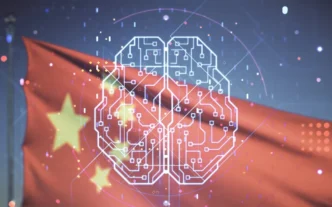David Khuat-Duy, the founder of Ivalua, has transitioned from his role as Chief Executive Officer (CEO) to Chief AI Officer (CAIO) at the company. This move underscores Ivalua’s strategic shift to place AI at the heart of its product development and operational strategies.
Having founded Ivalua in 2000, Khuat-Duy has guided the company to a valuation of US$1 billion, serving major global clients like IKEA, Volkswagen, and Bulgari. Ivalua’s platform helps enterprises manage supplier relationships and optimize spend, and now, AI is becoming central to driving efficiency and performance across operations.
A Shift to Focus on AI Innovation
As an engineer by training, Khuat-Duy has led Ivalua through its evolution, scaling the company internationally and refining its products. With the increasing importance of AI in the procurement industry, his move from CEO to CAIO is a strategic decision to focus on AI’s transformative potential.
The creation of the CAIO role signifies Ivalua’s commitment to embedding AI deeply within both the platform and its internal processes. AI holds substantial promise for procurement functions, including predictive analytics, risk detection, and supplier performance forecasting. Ivalua has already integrated AI features that enhance decision-making, automate routine tasks, and identify inefficiencies in supplier networks.
In his new role, Khuat-Duy is tasked with scaling AI across product development and business operations. This includes training AI models to better understand procurement workflows, customizing AI solutions for specific industries, and leveraging AI internally for sales, customer success, and R&D efforts.
In an interview, Khuat-Duy shares how Ivalua is expanding its AI capabilities to optimize internal processes and increase the value delivered to clients. He also discusses the crucial role AI now plays in business strategy and leadership.
Ivalua has been working on integrating AI for years, initially focusing on areas like invoice and contract data capture. However, with the advent of ChatGPT, the company decided to deepen its AI strategy, embedding advanced AI technologies throughout its platform. Khuat-Duy emphasized the profound impact AI will have on both Ivalua and the software industry as a whole, which led to his decision to formally transition into a role centered on AI.
The switch also allows Franck Lheureux, Ivalua’s new CEO, to continue leading the company, while Khuat-Duy focuses on pushing the AI envelope within their offerings.
Ivalua Gen AI Use Cases: Improving Procurement Efficiency
Over the past two-and-a-half years, Ivalua has embedded generative AI (Gen AI) at the core of its platform. The company has built numerous use cases aimed at improving procurement decision-making and supplier collaboration.
For instance, contract summarization tools help define improvement plans from supplier questionnaires. Another key feature is the category research assistant, which consolidates information from the internet to offer detailed overviews for procurement professionals, aiding them in advanced research tasks.
Ivalua is also developing a real-time conversation analytics tool, enabling users to ask questions about procurement data and receive instant insights. One of the most impactful AI modules is intake management, where Gen AI guides users through workflows and captures input more effectively.
With AI’s widespread adoption, Khuat-Duy acknowledges the challenge of algorithmic bias, particularly in supplier evaluations. To address this, Ivalua is developing an evaluation layer that continuously checks AI-generated insights, ensuring more accurate and unbiased results. This layer introduces human feedback into the process, helping to mitigate bias and build trust in AI-driven decisions.
The Role of the CAIO in Overcoming AI Challenges
Khuat-Duy’s transition to CAIO is not only about enhancing the company’s AI-driven solutions but also about guiding Ivalua through the process of adapting to rapid technological changes. As AI is deployed, Ivalua is working internally to ensure that the entire company understands its benefits and challenges. This approach ensures that AI can be integrated into operations smoothly while also being adapted to meet customer needs.
For large enterprises, the change to AI-powered procurement systems takes time, as it requires shifts in organizational culture, processes, and people. Khuat-Duy’s role as CAIO allows him to guide both Ivalua and its clients through this transformation, ensuring the company maximizes the potential of AI at every level.
In conclusion, AI’s integration into Ivalua’s operations represents not just a technological advancement, but a fundamental shift in how the company delivers value to its global clients. By embedding AI at the core of both product development and internal operations, Ivalua is positioning itself as a leader in AI-driven procurement solutions.













